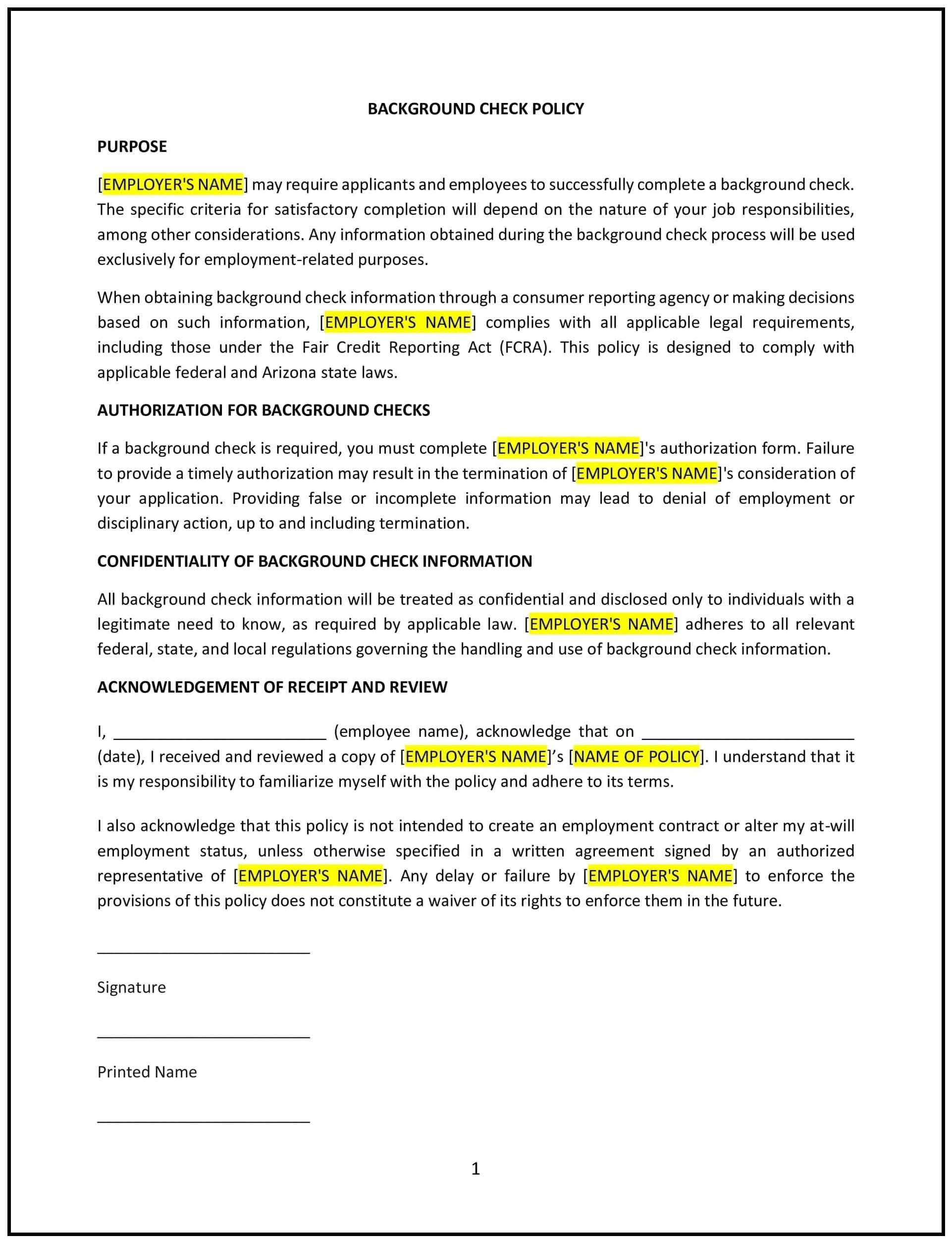Got contracts to review? While you're here for policies, let Cobrief make contract review effortless—start your free review now.

Customize this template for free
Background check policy (Arizona)
In Arizona, a background check policy helps businesses maintain a safe and trustworthy workforce by outlining clear procedures for conducting pre-employment and ongoing background checks. This policy supports compliance with state and federal laws, such as the Fair Credit Reporting Act (FCRA) and Arizona-specific regulations, while ensuring fairness and transparency.
This policy defines the types of checks performed, such as criminal records, employment history, or credit checks, and provides guidelines for obtaining consent and handling results. By implementing this policy, businesses in Arizona can mitigate risks and make informed hiring decisions.
How to use this background check policy (Arizona)
- Define the scope: Specify which roles require background checks and the types of checks performed, such as criminal history, education verification, or driving records, depending on job requirements.
- Obtain consent: Ensure written consent is obtained from candidates or employees before conducting any background checks, as required by the FCRA and Arizona laws.
- Handle results fairly: Establish consistent criteria for evaluating background check results, ensuring decisions are made objectively and without discrimination.
- Ensure confidentiality: Protect the privacy of candidates and employees by securely storing and handling background check information.
- Provide adverse action notices: If adverse decisions are made based on background check results, follow the FCRA’s requirements for notifying candidates or employees.
Benefits of using a background check policy (Arizona)
This policy provides several advantages for Arizona businesses:
- Enhances safety: Reduces risks by identifying candidates who may pose a threat to workplace security or reputation.
- Supports compliance: Aligns with Arizona and federal laws, minimizing the risk of legal disputes or regulatory penalties.
- Promotes consistency: Establishes a standardized process for conducting and evaluating background checks, ensuring fairness.
- Protects reputation: Helps businesses avoid hiring decisions that could lead to negative publicity or operational risks.
- Encourages informed hiring: Provides employers with reliable information to make better decisions about candidates and employees.
Tips for using a background check policy (Arizona)
- Address Arizona-specific laws: Ensure the policy complies with state laws governing the use of criminal history in hiring decisions, such as restrictions on considering arrest records.
- Focus on job relevance: Tailor background checks to the specific responsibilities of each role to avoid unnecessary screenings.
- Provide training: Educate HR staff and hiring managers on the proper implementation of background checks and compliance with legal requirements.
- Regularly review vendors: If using third-party providers, periodically evaluate their practices to ensure compliance and accuracy in reporting.
- Keep records: Maintain documentation of all consent forms, background check reports, and decisions to ensure transparency and legal protection.